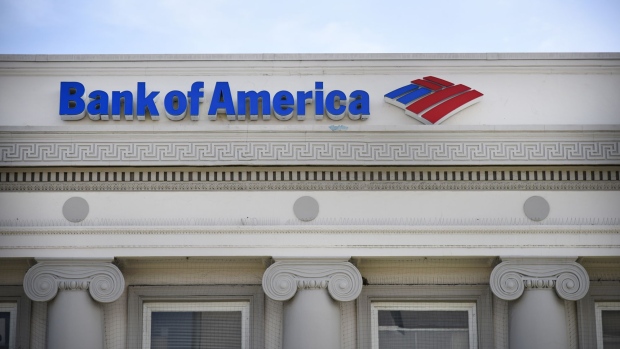(Bloomberg) -- Bank of America Corp. started a trial program aimed at helping first-time homebuyers in Black and Hispanic neighborhoods by offering mortgages that don’t require down payments, closing costs or minimum credit scores, all considered longtime obstacles to narrowing the gap between White and minority ownership.
Customers using the program will be evaluated for a home loan not by credit scores, but rather factors such as their history of making rent, utility, phone and auto-insurance payments on time, BofA said in a statement Tuesday. The program will be tried out in certain predominately Black and Hispanic areas of Dallas, Detroit, Los Angeles, Miami and Charlotte, North Carolina. BofA wouldn’t disclose the planned size of the program, which may be expanded later to other cities.
The Charlotte-based bank is going beyond credit scores so “people can use other mechanisms to define their creditworthiness, buy a home and build their wealth,” AJ Barkley, head of neighborhood and community lending at BofA, said in an interview.
While US homeownership saw its biggest annual increase ever during the pandemic, it remained lower than a decade earlier for African Americans, and Black and Hispanic buyers were more likely to be rejected for mortgages than their White and Asian counterparts, according to the National Association of Realtors. Approval rates for homeowners looking to lower their payments have also varied by race, with BofA approving 66% of Black refinancing applicants and 78% of White ones in 2020, according to data compiled by Bloomberg.
The US Justice Department has hammered lenders for practices that discriminate against minority borrowers, and, in the wake of George Floyd’s murder in 2020, banks and other corporations vowed to do more to fight racial inequities. BofA’s new offering is on top of a $15 billion program that offers down-payment and closing-cost assistance to lower-income consumers, and another program that has a goal of providing $15 billion more in mortgages to low- to moderate-income buyers through May 2027.
While no-down-payment mortgages potentially make it easier for lower-income borrowers to buy homes, they’re not without risks. If the housing market were to slump, homeowners without a significant amount of equity may have little incentive to keep paying their mortgages, hurting their credit scores and sticking lenders with foreclosed homes. Under the BofA program, the lender is giving homebuyers down-payment grants of $10,000 to $15,000 so they have immediate equity in their homes.
“Lower-down-payment loans perform worse, all things being equal -- but all things are not equal,” said Laurie Goodman, an institute fellow at the nonprofit Urban Institute, speaking generally about such programs and not BofA’s in particular. “There is a way to offer these loans where it isn’t as risky, where other factors can more than compensate for a low down payment,” and there is an argument, she added, for taking on “a slightly higher probability of default in order to give people the opportunity to build wealth.”
Borrower Qualifications
The Bank of America offering requires borrowers to have certification from the US Department of Housing and Urban Development and counseling to qualify, Barkley said. In the past, the bank has had to deal with soured loans inherited from Countrywide Financial Corp., which was accused of failing to properly verify and analyze borrowers’ employment, income, credit information, liabilities and other data.
“We will qualify applicants to confirm they have demonstrated an ability to repay,” she said. “What we don’t want to do with this program is place people in homes they cannot stay in.”
Applicants don’t need to disclose their race, and US Census data will be used to determine that eligible neighborhoods are predominately Black or Hispanic, Barkley said. There is no minimum or maximum loan size under the new offering, which qualifies as a Federal Deposit Insurance Corp. “special purpose credit program.”
Separately, Bank of America announced a lending program to help small businesses owned by minorities and women. Historically disadvantaged borrowers will be able to apply for down-payment grants of as much as $25,000 to help with commercial real estate purchases, according to a statement. Initially, the properties must be in opportunity zones in Atlanta, Chicago, Charlotte, Dallas or Los Angeles, though the program is slated for expansion next year.
Source: Bloomberg L.P.













